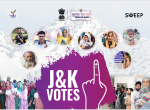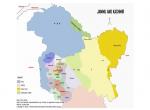The Jammu and Kashmir problem has imposed heavy political, diplomatic and military costs on India for the last 63 years. It has excessively conditioned our external relations, with much of our diplomacy occupied over the years with explaining to other countries our position on J&K, warding off criticism, countering propaganda, opposing moves or resolutions in international forums adverse to us. India has faced a general lack of understanding for our predicament in J&K from the West for several reasons: the complexity of the problem, the issue of self-determination, political clouding of the issue in the UN because of cold war currents, the pro-Pakistan disposition of key Western countries because of Pakistan’s membership of western military alliances and India’s non-alignment and perceived pro-Soviet policies, etc. Our relations with the Muslim world have remained constricted because of our seeming ill-treatment of Kashmiri Muslims.
Pakistan is at the core of our Kashmir problem. India made the mistake of giving its illegitimate claim the legitimacy of international law in the guise of the ‘democratic’ principle of self-determination. As a democracy India is wrong-footed when it is seen opposing self-determination. It opens itself to the charge of holding down the Kashmiris against their will. Our arguments that we have held several elections in J&K and that Pakistan, with its pallid democratic credentials and long bouts of military rule, is hardly positioned to ask for the Kashmiris what it denies to people under its rule, especially in PoK, the Northern Territories and some of its restive provinces like Baluchistan, do not take us off the hook. Put on the defensive in the UN where India went as a complainant, India has been on the defensive ever since.
A country like the US with which we are forging strategic ties calls for the resolution of the problem bilaterally between India and Pakistan ‘in accordance with the wishes of the people’, as an astute compromise between India’s position on bilateralism and Pakistan’s hawking of ‘self-determination’. The US position implies that the passage of time has not resolved the issue in practical terms on the ground, that periodic elections in J&K do not constitute an ‘expression of the wishes of the people’ and that the demand of the separatists and their Pakistani backers remains pertinent. Having taken control of two-fifths of the erstwhile state of J&K by force, with the solid geo-political gains of obtaining contiguity with China and denying India one with Afghanistan, Pakistan has nevertheless remained covetous of more Indian territory and relentless in its confrontation with India. The crumbling of the Pakistani state and the country’s economy, and terrorism that is now bleeding the country internally, has not deterred Pakistan from its self-defeating India/Kashmir fixation. After the Musharraf interregnum which obscured the ‘self-determination’ issue in the search of a bigger goal of either eroding India’s sovereignty over J&K or sharing sovereignty over it, Pakistan has begun regurgitating more aggressively the cynical formula of only ‘giving diplomatic and moral support to the people of Kashmir for their right to self-determination’, with its spokesman warning India that Pakistan would stand through ‘thick and thin’ with the Kashmiris in their resolve to get this right. Even the tragedy of the floods has not tempered Pakistan’s malevolence.
The J&K issue has taxed us heavily in security terms. Pakistan has used every weapon in its panoply to wrest Kashmir from us or destabilise our hold over it — war, infiltration, jihad and terrorism. It has sustained the separatist forces in J&K with funds, strategic guidance, training and arms. The promotion of jihadi ideology has had the objective of altering the eclectic ethos of J&K and making the Kashmir struggle part of the larger Islamic revolt against the world wide ‘oppression’ of Muslims. The so-called ‘moderate’ separatist elements have rejected dialogue and participation in electoral exercises in J&K under threat of physical elimination by extremists whose intent has been to prevent a ‘democratic’ solution and blunt the appeal of India’s secularism.
Faced by external threats and internal disaffection transmuted into terrorism in the last two decades, India has been compelled to maintain a large military and paramilitary presence in J&K. Maintaining law and order, engaging in combing operations against infiltrators and terrorists, quelling violence with the use of force, the collateral damage inevitable in such actions in populated areas, genuine instances of excessive use of force in situations of tension and violence, all this has opened India to accusations of militarily ‘occupying’ Kashmir, of high-handedness against the civilian population, of denying the Kashmiris the benefits of Indian democracy, of human rights violations, etc. A successful strategy in J&K has eluded India because a sullen Muslim population has made it very difficult to deal effectively with external and internal subversion. India has to be sensitive to the means it uses, and the ruthlessness of their application.
The recalcitrance, narrow-mindedness and insularity of the Kashmiri people have aggravated their own plight and the problem for the Indian government. They make a fetish of autonomy even while enjoying more autonomy than any other Indian state. It simply does not make sense for India to give more autonomy to a region that is externally coveted, is blighted with separatism, is plagued by terrorism and is prey to Islamic radicalism. The normal reaction of a state would be to secure and stabilise the situation first before releasing control. India has nevertheless respected Kashmiri autonomy in large measure, but this is not appreciated by the Kashmiris. They exhibit no commitment to the country’s integrity and show no understanding of the grave consequences for the rest of the country of azadi for them. The separatists confabulate openly with Pakistani leaders, align their political action and strategies to Pakistani interests, fly Pakistani flags, reject dialogue with Indian leaders, engage in campaigns against India in the OIC etc. They blame India for their sense of alienation, even though they have emotionally rejected their Indian identity from the beginning. They are complicit in destroying progressively their ‘Kashmiriyat’ — already in question after the expulsion of the Kashmiri Pandits — by absorbing radical Arabised Islamic ways. The stone-pelting spree inspired by the Palestinian intifada suggests a linking up of the struggle in Kashmiri to a wider Islamic agenda.
The dismissal of the prime minister’s recent well-meaning address that reached out to the Kashmiri youth and promised more job opportunities to them shows the intractability of Kashmiri attitudes towards India. Whatever the Indian mistakes in Kashmir, the sense of victimhood of the Kashmiris is politically engineered. The bigger victim of the Kashmir imbroglio is India
Kanwal Sibal is a former foreign secretary
Article is published on New Indian Express dated 27th August 2010









Post new comment